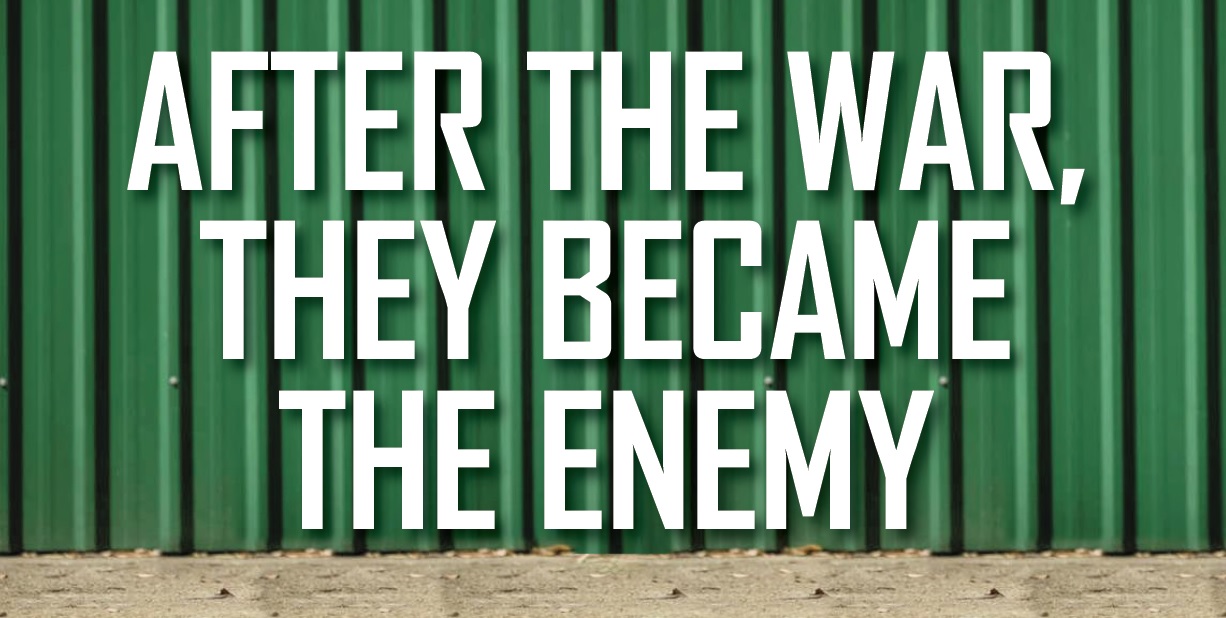
AFTER THE WAR, THEY BECAME THE ENEMY
BY DOMINIC CERTO
"Pow" is the sound of a muffler blast from a past-its-prime car. Suddenly, you're face down on the sidewalk, biting gritty cement, with one arm outstretched and the other bent firmly against your side. As you lay on the cold winter concrete reaching for a weapon that doesn't exist, you look up to see two somewhat familiar men in business attire. They are looking down at you with questioning eyes, wondering if you are mentally challenged or uptight – alarmingly so. Your new job as a trainee broker for an investment banking firm is already in jeopardy as you struggle to calm and compose yourself, offering apologies.
This is how you now recall those years, post-Vietnam 1970s. The Wounded Warrior Project, designed to honor and empower wounded soldiers returning home, had yet to be invented. Homecoming receptions for combat warriors, if they took place at all, were notable for what they lacked. There was no "Thank for your service." No smiles or support. If the folks back home displayed concern, it was fear for their own safety. The American boy trained to fight and kill in foreign wars was returning to civilian life as a grown
man – possibly dangerous, addicted to drugs and violently deranged. This is the first phase of your post-combat life: "The social readjustment process for returning Vietnam combat veterans."
"Oh, my God" is the sound of your wife, holding up her arms in fear and self-defense, anticipating your bursts of violence. Her beloved husband is now transformed into a stranger who suffers from chronic nightmares. You struggle to shake yourself free from dreams of hellish landscapes where you find yourself – and almost lose yourself. Shocked and wide awake, she asks what's happening and if you're all right. You have no idea what kind of screams she heard or what actions you may have executed, but you are thankful that upon awakening, you were no longer there, trapped in a hellish nightmare. The woman you care about looks at you in shock, fear and a touch of sympathy as you beg her to relax. You tell her it's OK, but she's not so sure. She's afraid, concerned and unsure about the future. This is Phase Two: "The family readjustment process for returning Vietnam combat veterans."
Silence is the deafening sound that envelopes you, as you stare at a wall and remember the worst parts of war. The choppers bellow from above, carrying dead or wounded friends. Blood-splattered children crying for the loss of murdered parents. Explosions, smoke and rounds of fire. It all reminds you that hell exists beyond the world of the dead. You look for a cigarette, a drink, a joint – anything to stop the thoughts. This is life in the 1970s – the TV paints you as a war criminal, not a returning hero. It doesn't matter if you served to defend or you tried to save lives – you were part of an atrocity, no matter what ideals you nurtured. Who are you and what have you become?
Silence is the deafening sound that envelopes you, as you stare at a wall and remember the worst parts of war. The choppers bellow from above, carrying dead or wounded friends. Blood-splattered children crying for the loss of murdered parents. Explosions, smoke and rounds of fire. It all reminds you that hell exists beyond the world of the dead. You look for a cigarette, a drink, a joint – anything to stop the thoughts. This is life in the 1970s – the TV paints you as a war criminal, not a returning hero. It doesn't matter if you served to defend or you tried to save lives – you were part of an atrocity, no matter what ideals you nurtured. Who are you and what have you become?